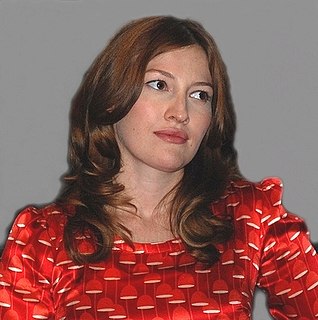A Quote by Dominic Cummings
Most educated people are not set up to listen or change their minds about politics, however sensible they are in other fields.
Related Quotes
The history of science, like the history of all human ideas, is a history of irresponsible dreams, of obstinacy, and of error. But science is one of the very few human activities-perhaps the only one-in which errors are systematically criticized and fairly often, in time, corrected. This is why we can say that, in science, we often learn from our mistakes, and why we can speak clearly and sensibly about making progress there. In most other fields of human endeavour there is change, but rarely progress ... And in most fields we do not even know how to evaluate change.
You don't have any other society where the educated classes are so effectively indoctrinated and controlled by a subtle propaganda system - a private system including media, intellectual opinion forming magazines and the participation of the most highly educated sections of the population. Such people ought to be referred to as "Commissars - for that is what their essential function is - to set up and maintain a system of doctrines and beliefs which will undermine independent thought and prevent a proper understanding and analysis of national and global institutions, issues, and policies".
Self-actualization is what educated existence is all about. For members of the educated class, life is one long graduate school. When they die, God meets them at the gates of heaven, totes up how many fields of self-expression they have mastered, and then hands them a divine diploma and lets them in.
I suspect that the most basic and powerful way to connect to another person is to listen. Just listen. Perhaps the most important thing we ever give each other is our attention And especially if it's given from the heart. When people are talking, there's no need to do anything but receive them. Just take them in. Listen to what they're saying. Care about it. Most times caring about it is even more important than understanding it. Most of us don't value ourselves or our love enough to know this.

































